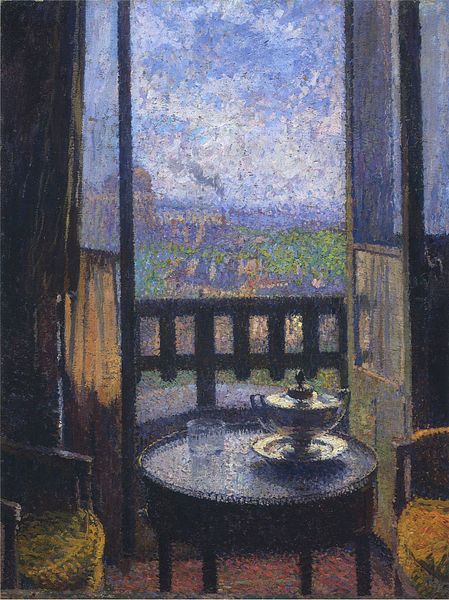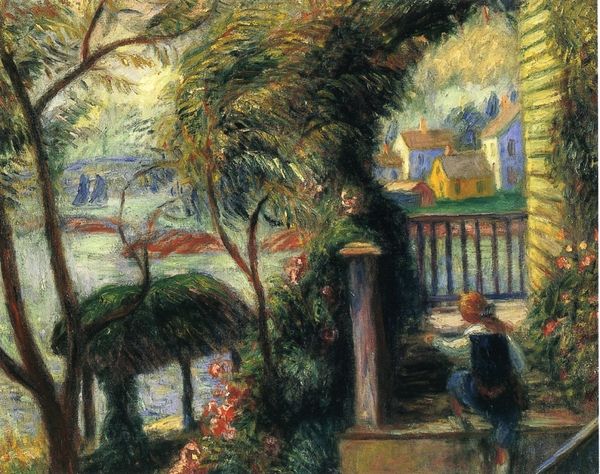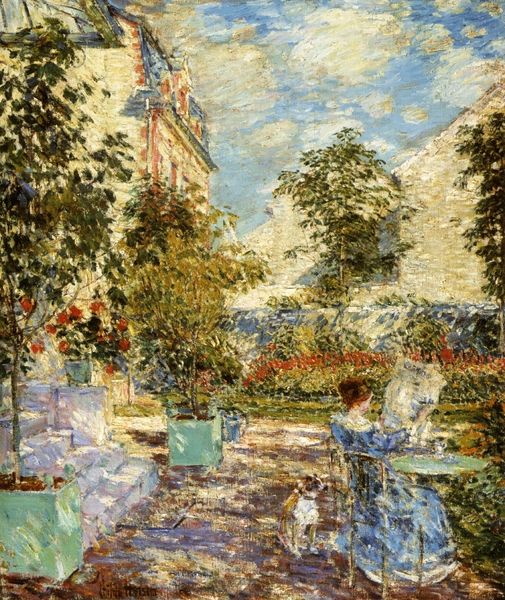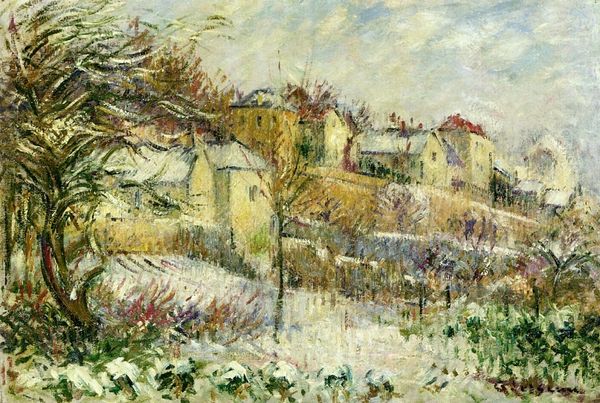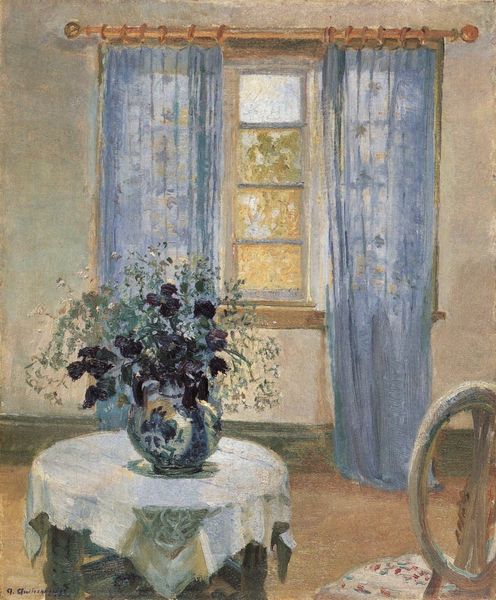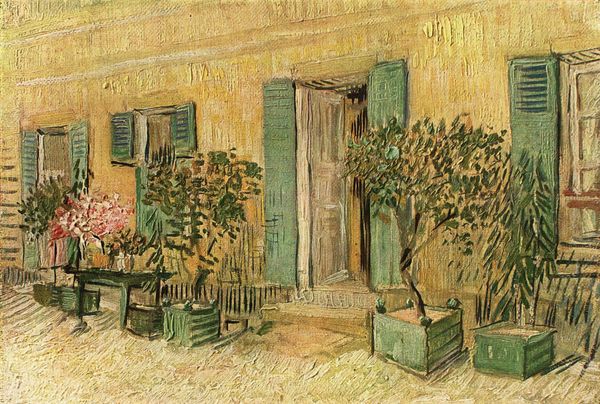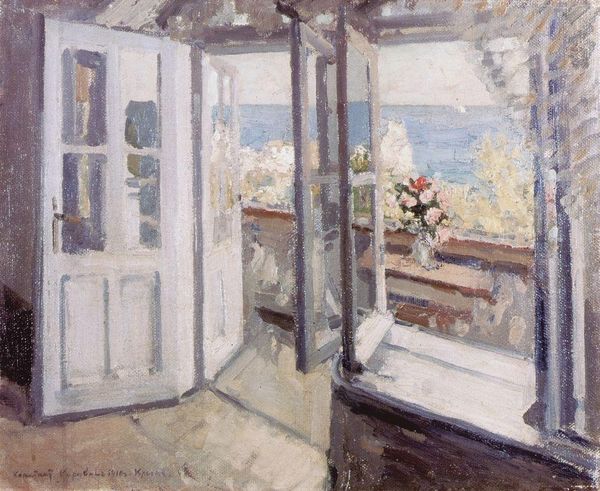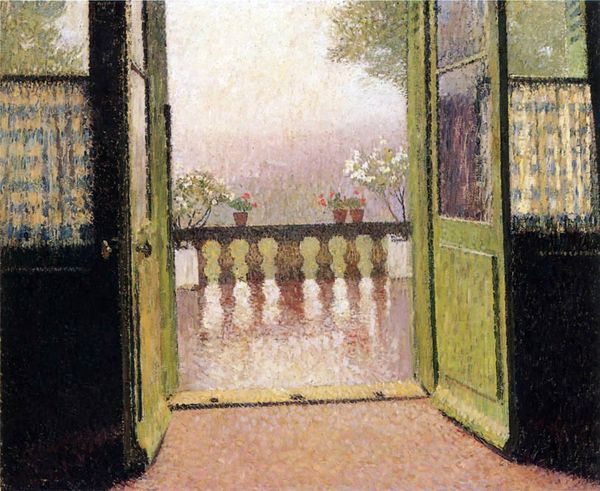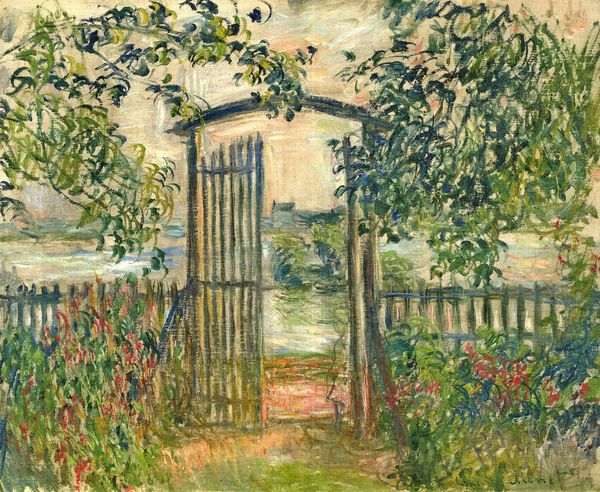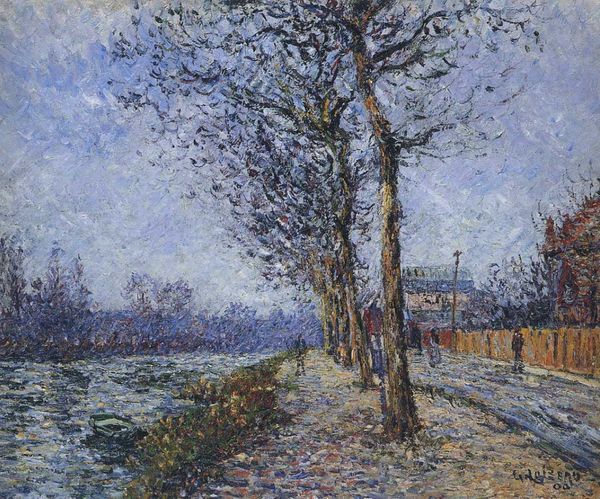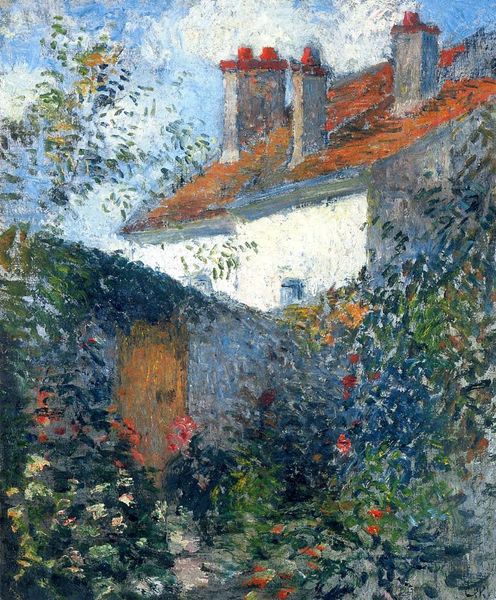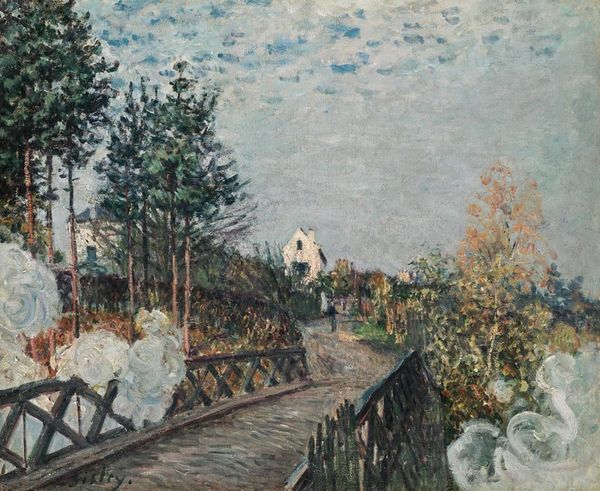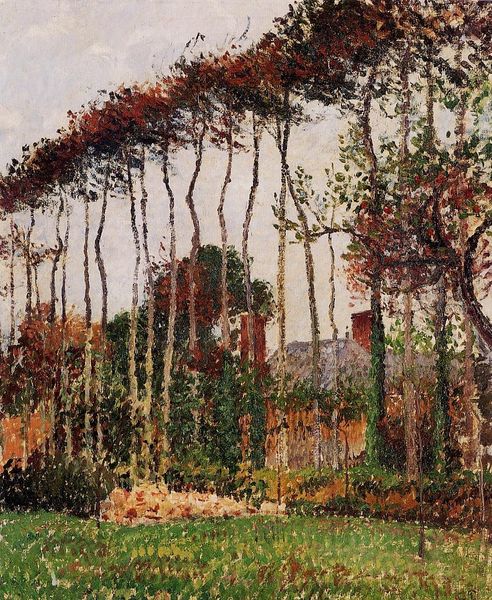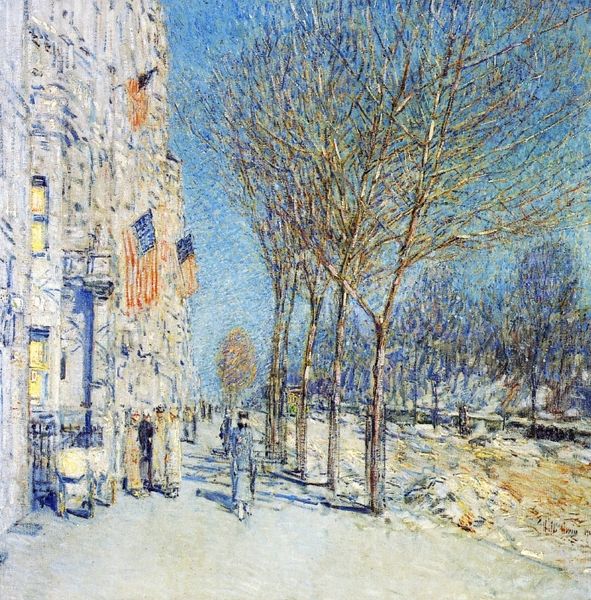
Dimensions: support: 635 x 762 mm
Copyright: CC-BY-NC-ND 4.0 DEED, Photo: Tate
Editor: Louise Pickard's "The Green Balcony," currently housed in the Tate, presents a somewhat obscured view, almost like a memory fading at the edges. What symbolic weight do you find embedded within this painted scene? Curator: The green balcony acts as a liminal space, a threshold between interior contemplation and the external world. Notice how the bridge in the distance, typically a symbol of connection, is softened, indistinct. This creates a sense of longing, a yearning for something just out of reach. Editor: So, the balcony isn't just a physical place, but also a representation of a psychological state? Curator: Precisely. The objects and settings within a painting operate almost like dreams, reflecting a culture's or an individual's anxieties and desires. What emotions do you associate with the imagery in this picture? Editor: I see the blurring of inside and outside as being central to its effect. Thank you for that perspective. Curator: My pleasure. I find the interpretation of symbols a fascinating and ongoing process.
Comments
tate 10 months ago
⋮
http://www.tate.org.uk/art/artworks/pickard-the-green-balcony-n04426
Join the conversation
Join millions of artists and users on Artera today and experience the ultimate creative platform.
tate 10 months ago
⋮
Pickard was 30 years old when she finally overcame her family’s resistance to her choice of career and enrolled at the Slade School of Art. She later trained in Paris. By the end of the first world war she had became a conspicuous exhibitor at the New English Art Club, along with Walker, Sands and others. Her work reflects what critic D.S. MacColl tartly called ‘a field surrendered to [women artists] by the men of their generation’, often repeating subjects (she could rarely afford models) drawn from her immediate surroundings. Gallery label, February 2010
